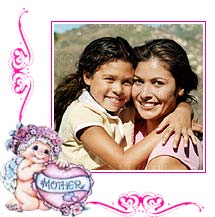
WASHINGTON — Kids working on tobacco farms are exposed to nicotine residue and dangerous pesticides that are making them sick, Human Rights Watch reported Wednesday.
The group called on President Barack Obama to issue an executive order or take other action barring hazardous child labor on American farms. Congress should enact legislation prohibiting children younger than 18 from dangerous farm work and the Department of Labor should resurrect rules it shelved that would have deemed contact with tobacco plants among jobs particularly harmful to children, Human Rights Watch said.
"There is significantly less protection for children on farms" than in other industries, said Margaret Wurth, one of the authors of the report Tobacco's Hidden Children.
Human Rights Watch interviewed 141 tobacco workers ages 7 to 17 who worked on farms in 2012 or 2013 in Kentucky, North Carolina, Tennessee and Virginia.
Those young workers frequently worked 50 to 60 hours a week in hot and damp conditions, using dangerous tools and machines, and risking falls from tobacco barns, the report said. But three-quarters of the children also were exposed to so much nicotine from handling tobacco leaves that they experienced serious illnesses, such as breathing problems, nausea, skin rashes, headaches and irritations in their eyes and mouths.
JUNE 2012: Tougher labor rules to protect children on farms fail
JANUARY 2012: Proposed federal rules would limit kids' work on farms
And some young workers also reported being exposed to pesticides sprayed on or near them, the report said.
"Some people got really sick," Erick Garcia, 17, said at a National Press Club news conference Wednesday. He began working in North Carolina tobacco fields at 11 years old. "The owner didn't care about it."
"I was dizzy. I felt like the world was spinning around my head," she said. "I was going to puke." But her complaints were never heeded because "whatever I said wasn't worth anything because I was a child."
The report reveals abuses that largely have gone under the radar of health and safety regulators, said Jane Buchanan, co-author of the report and associate director of Human Rights Watch Children's Rights Division.
"This has not really come to light before," she said. "We believe there are thousands of child tobacco workers here in the United States."
Sen. Tom Harkin, D-Iowa, a member of the Senate's Agriculture, Nutrition and Forestry Committee, is concerned about the issue.
"We have a moral obligation to protect vulnerable workers, especially children," he said in a statement. "To think that we have children in America who are suffering acute nicotine poisoning because they are working in the tobacco fields of the U.S. is truly appalling."
Matthew Myers, president of the Campaign for Tobacco-Free Kids, considers the revelations of the Human Rights Watch report another way the tobacco industry exploits children.
The report singled out one tobacco company for praise. Philip Morris International (PM) has developed a child labor policy it already is carrying out. The company opposes work for children younger than 15 or the minimum age set by a nation's laws, whichever is higher. And the firm said it does not allow children younger than 18 to engage in hazardous work.
"Child labor in agriculture in the U.S. is a serious issue and it's not just in tobacco," said Miguel Coleta, director of external labor policies at Philip Morris. "Human Rights Watch's prior research shows that."
His company already has severed contracts with 20 American farms that would not agree to its child-labor policies, Coleta said.
The company intends to monitor compliance with its child labor restrictions on all American farms by next year, Coleta said.
"We're not trying to hide here," he said. "We want better visibility about what is going on on the farms."
The Labor Department in 2012 withdrew regulations that would have limited the use of children in agriculture after an outcry from the industry. Part of the regulations would have barred children younger than 16 from being involved in tobacco harvesting. At the time, the agency said the Obama administration respected "the rural way of life, especially the role that parents and other family members play in passing those traditions down through the generations."
Asked about Human Rights Watch's call to reissue the regulations, Labor Department officials released a statement saying the group's report "calls attention to a very serious issue — certain work activities and environments that threaten the health, safety and welfare of children."
"Engaging with workers, employers, and others is key to achieving our mission," the department said. "And we look forward to speaking with the report's authors about their findings and how we can continue to work together to ensure that young workers in agriculture are only employed and working within the rules."
